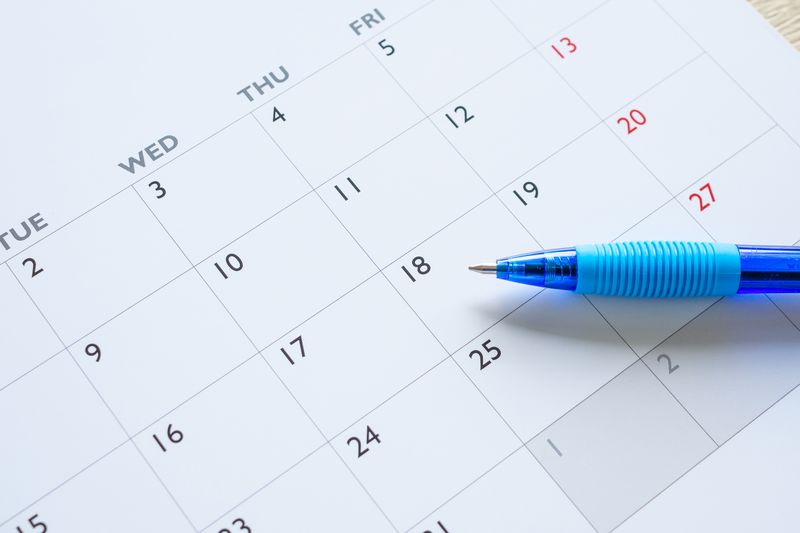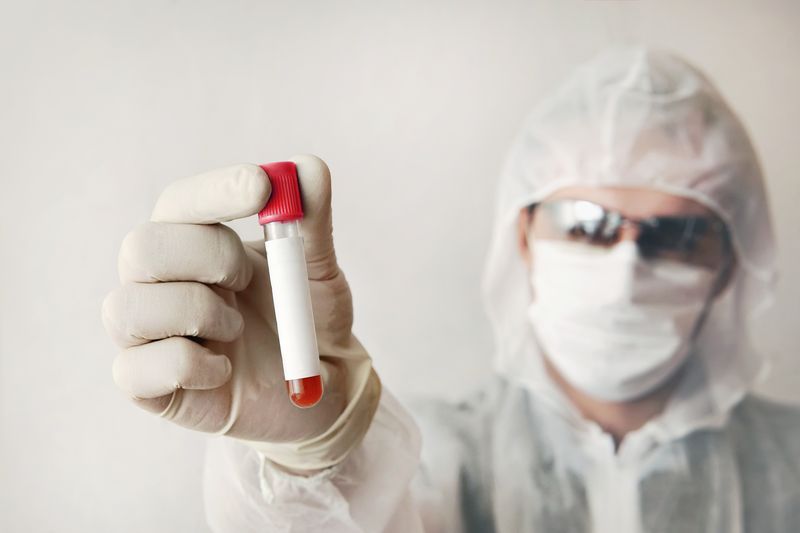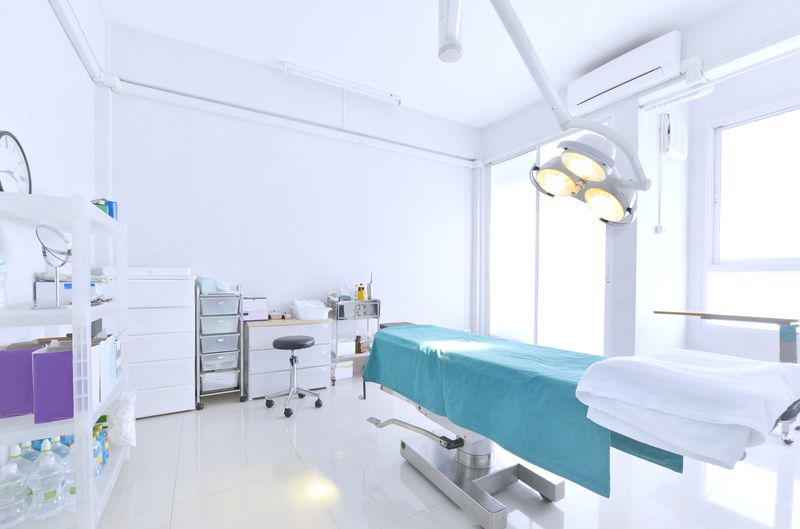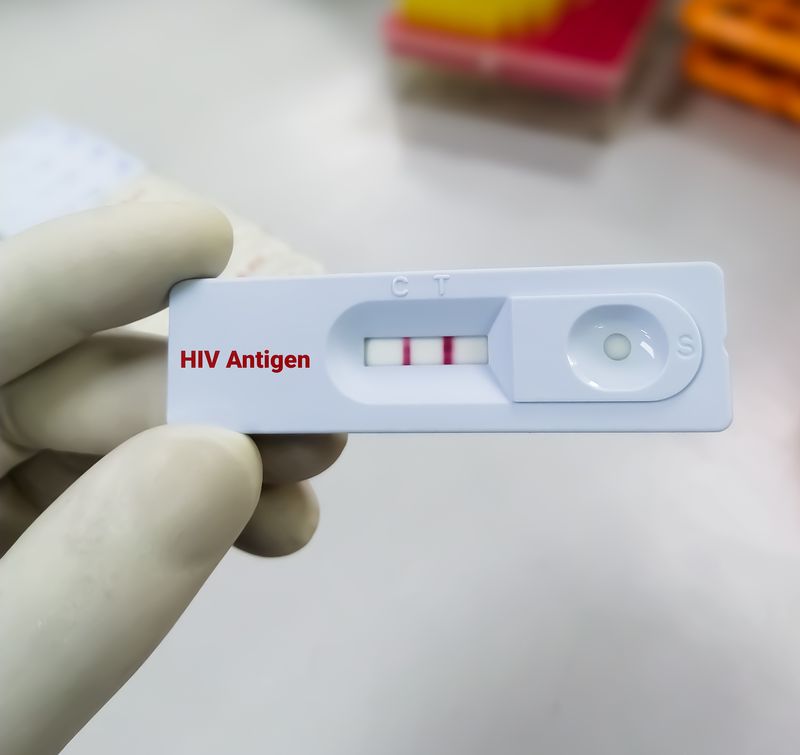HIV Test Necessary ? Methods & Best Clinics 2025 [Answer in article]
HIV testing is an essential way to clearly understand one’s health status. Early detection matters because it allows doctors to provide timely care, reduces the risk of transmission, and enables individuals to live with greater confidence and peace of mind.
Today, various testing methods are widely accessible, including rapid tests, laboratory tests, and even self-tests at home. Each has its advantages, and anyone at risk—or uncertain about their health—should consider testing as a step toward long-term protection.

HIV Test: Is It Necessary? Who Should Get Tested?
Getting tested for HIV is important because it allows individuals to know their health status early. Early detection helps doctors provide proper medical care, reduces the risk of unknowingly transmitting the virus, and enables people living with HIV to maintain a healthy, normal life.
Those who should get tested include people who have had unprotected sex, individuals who share needles, partners of people living with HIV, and anyone who has received blood transfusions or organ transplants in the past. Even people without obvious risks may choose to get tested for peace of mind and to take proactive care of their health.
How Long Does It Take to Get HIV Test Results? When Should You Get Tested?
The time it takes to receive HIV test results depends on the method used. A Rapid Test can provide results within 20–30 minutes, while a laboratory blood test may take 1–3 business days as it requires confirmatory testing for accuracy.
Equally important is choosing the right time after potential exposure. Testing too early may not be reliable. Doctors generally recommend testing at least 2–4 weeks after the risk event, and if the initial result is negative but risk remains, follow-up testing is advised for greater certainty.
Types of HIV Tests: Rapid Test, Lab Test, and Home Test
Today, there are several ways to test for HIV, each with its own strengths. The most common is the Rapid Test, which provides preliminary results within minutes, making it suitable for those who want immediate answers.
Another option is the laboratory blood test, which is highly accurate and often used to confirm Rapid Test results. The HIV self-test (Home test) has also become more popular, but if the result is positive or uncertain, it should always be confirmed at a clinic for accuracy.
HIV Testing Technology in 2025 (4th Gen, NAT, Combo Test)
HIV testing continues to advance for greater accuracy and faster results. By 2025, the 4th generation test is widely used, detecting both antibodies and antigens, which allows earlier detection compared to older methods.
Another key technology is the Nucleic Acid Test (NAT), which directly identifies the virus’s genetic material, making it highly reliable for high-risk cases. There are also combo tests that combine different methods to further improve confidence in the results.
How Is an HIV Test Different from an AIDS Test?
Many people mistakenly believe that an HIV test and an AIDS test are the same. In reality, an HIV test detects the presence of the HIV virus in the body, while AIDS is not directly tested—it is a stage of the disease that develops if HIV is left untreated and the immune system becomes severely weakened.
Therefore, when we talk about testing, it usually refers to HIV testing to identify infection at an early stage. Without treatment, HIV can eventually progress to AIDS, but the test itself is for HIV, not AIDS.
Where to Get an HIV Test? How to Choose a Safe Clinic
When choosing where to get an HIV test, it’s important to consider whether the clinic or hospital meets medical standards, employs qualified healthcare professionals, uses certified equipment, and protects patient confidentiality. Counseling before and after the test is also valuable, as it provides reassurance and guidance for those being tested.
In Bangkok, options include public hospitals, private clinics, and authorized health centers. It’s best to check for credentials, patient reviews, and operating licenses to ensure the service is both reliable and safe.
How Much Does an HIV Test Cost? Are Free Options Available?
The cost of an HIV test varies depending on the method and location. Rapid tests are generally more affordable and provide quick results, while laboratory blood tests tend to be more expensive due to confirmatory procedures and specialized equipment.
As of 2025, individuals with national health coverage or social security benefits in Thailand may access free HIV testing at government hospitals and selected health centers. Private clinics often offer testing packages with counseling included, so it’s best to check prices in advance to find the most suitable option.
Can You Get an Anonymous or Confidential HIV Test?
Privacy is a common concern when it comes to HIV testing. Many clinics and hospitals now offer anonymous testing, where a code is used instead of a patient’s name, ensuring personal details remain undisclosed.
Additionally, HIV test results are protected under health data privacy laws. Patients can be assured that their results will remain confidential and shared only with medical professionals or partners if they choose to disclose them.
HIV Testing Steps in Clinics (Pre-test → Post-test Counseling)
Before an HIV test, doctors or healthcare staff provide pre-test counseling to explain potential risks, appropriate testing methods, and help ease patient concerns.
Once the blood sample is collected and processed, results are delivered with post-test counseling to clarify their meaning. Whether the result is negative or positive, patients receive guidance on next steps, ongoing health management, or follow-up testing if required.
Rapid HIV Testing: Is Same-Day Result Possible?
Today, Rapid HIV Tests are available and can provide results within 20–30 minutes, making them ideal for those seeking immediate answers. However, if the result is positive, a confirmatory laboratory test is still required for the highest accuracy.
This rapid service is offered at private clinics and some hospitals, often accompanied by pre- and post-test counseling to ensure patients understand their results and the appropriate next steps for care.
HIV Self-Testing at Home: Is It Reliable?
HIV self-test kits, also known as home tests, are designed to be easy to use and provide results within a short time. They are suitable for individuals who value privacy and convenience for an initial screening.
However, accuracy depends on proper use and the timing of the test. If the result is positive or uncertain, it should always be confirmed at a clinic or hospital to ensure accuracy and allow for direct medical counseling.
Common Misconceptions About HIV Testing
There are still many misconceptions about HIV testing. Some believe that one test is enough, when in fact follow-up testing may be necessary if the initial test is taken during the window period, to ensure accuracy.
Another common misunderstanding is that HIV testing is painful or complicated. In reality, modern methods—whether lab-based blood tests or rapid tests—are quick, straightforward, and far more accessible than many people expect.
Frequently Asked Questions About HIV Testing (FAQ)
Is an HIV test painful?
Most HIV tests involve a small blood sample or an oral swab. The procedure is quick and causes minimal discomfort.
Do I need to fast before an HIV test?
No fasting is required before an HIV test, unless a doctor provides specific instructions for a particular case.
How accurate are HIV test results?
Laboratory-based tests are highly accurate, especially when done at the appropriate time. Positive results are usually confirmed with additional testing.
Do I need a follow-up test after the first HIV test?
If the test is taken during the window period, doctors often recommend follow-up testing to confirm the result.
Conclusion
Getting tested for HIV is not only about personal health but also about protecting others. Choosing the right testing method and a reliable facility builds confidence in the results and ensures access to timely treatment or preventive care.
If you are unsure about your risk, consulting a healthcare professional and getting tested is a vital step toward sustainable health and peace of mind.
References
- WHO — Global HIV Programme: HIV Testing Services
- WHO — Consolidated guidelines on differentiated HIV testing services (2024)
- FDA — HIV Home Test Kits
- FDA — OraQuick HIV Self-Test (approved test)
- CDC — Clinical Testing Guidance for HIV (คำแนะนำตรวจ HIV ล่าสุด)
If you want to book appointment or consult more.
You can booking from website or social media this bottom section




